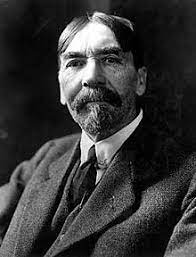Veblen, Thorstein

Bio: (1857-1929) American economist and sociologist. Thorsten Veblen received a Ph.d. from Yale University and has taught at several universities, including the University of Chicago and Stanford University. In his works, he connected economy and sociology, studying how economics and society intertwine and achieve mutual influences. Veblen is best known for his book The Theory of the Leisure Class (1899), which studies the status consumption of the "leisure class", which consists of renters and absent property and business owners. Veblen rejects the idea of completely rational economic behavior and believes that a large part of consumption, and thus production, can be explained by the desire of people to increase their own social status and reputation. To achieve this higher status, individuals, especially those belonging to the upper classes, indulge in the wasteful consumption of luxury goods. In countries that have great social and geographical mobility, such as the United States, luxury spending is the fastest and safest way to confirm one's social status. The wasteful spending of the leisure class has no function other than creating a social distinction that allows that class to reproduce the social hierarchy.
In several of his books, Veblen makes a sharp critique of capitalism, and he has a particularly negative view of the absent owners of large companies, which he considers to be complete social parasites. He studies the process in which the management of large companies is taken over by professional directors and managers who do not own the capital of the companies they manage. In addition, he criticizes the superiority of financial capital over productive capital, as well as the exploitation of workers by capitalists. In his opinion, the technology that enables the production of new things has the most positive impact on the development of the economy. Veblen is considered one of the founders of the "institutional economy". Institutional economics places great emphasis on the legal and political system and studies how legal and political institutions affect the functioning and development of the economy. In his book The Higher Learning in America (1918), Veblen criticizes the situation in which American universities have become completely subordinated to the capitalist logic of making a profit, which directly affects the way universities are run, but also how academic programs look.
Fields of research
Capitalism Capitalist Class Classes Corporations Education Entrepreneurship Exploatation, Economic History Industry Institution and Organization Management Mobility, Social Rationality Science Status Technology Work Working Class ConsumerismTheoretical approaches
Institutional Approach (Economics)Main works
The Theory of the Leisure Class: An Economic Study of Institutions (1899);
The Theory of Business Enterprise (1904);
The Instinct of Workmanship (1914);
Imperial Germany and the Industrial Revolution (1915);
An Inquiry into the Nature of Peace and the Terms of Its Perpetuation (1917);
The Higher Learning In America: A Memorandum On the Conduct of Universities By Business Men (1918);
The Place of Science in Modern Civilisation and Other Essays (1919);
The Vested Interests and the Common Man (1919);
Absentee Ownership and Business Enterprise in Recent Times: The Case of America (1923).

